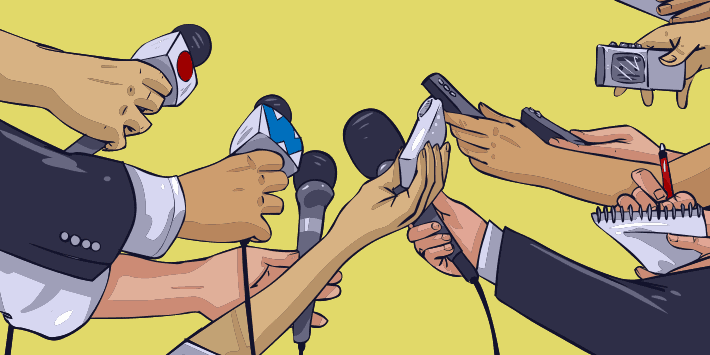
Days
Course Location
Online
During this course, you will learn to:
- Describe the policies in their jurisdiction relating to who is authorized to respond to media requests for information.
- Design a personal plan for developing relationships with journalists and other media personnel.
- Prepare an action plan for media requests of “attacks.”
- Issue orders related to conduct in the courtroom.
Notorious cases with high media interest can be assigned to you in any court. What should you do when a reporter calls or shows up on your doorstep with a camera crew in tow? Judges who need immediate help with these situations now have a resource at their fingertips.
This free online self-study course can help. NJC President Chad Schmucker spoke to judges recently about the course and said, “If you have such a case, or you may have such a case in the future, we want you to be prepared and we know you want to be prepared. We know you want to handle the case fairly, efficiently, and properly. That’s the goal of this course, and I’m sure it will help you achieve that goal.”
The course consists of three self-study modules designed to be completed in about two hours. Module One: Establishing Relationships and Developing a Media Plan; Module Two: What to Do When Reporters Contact You; and Module Three: Reporters and New Media in Your Courtroom.
About Rollan Melton
The late Rollan Melton was a noted journalist in Reno, Nevada, who was keenly interested in the relationship between the courts and the media. He held prominent leadership positions with Gannett including: 1) senior vice president in the Newspaper Division, 2) heading the Gannett West group 3) member of the Gannett Board of Directors and 4) a leading force for the creation of USA Today. He served multiple times on the Board of Trustees of The National Judicial College and was the Board’s secretary. Rollan understood the importance of fair and impartial courts in a democratic society and the courts’ role in ensuring that the government shall not “abridge the freedom of speech or of the press.”
Sponsored by the Rollan D. Melton Fund
Donald W. Reynolds National Center for Courts & Media
